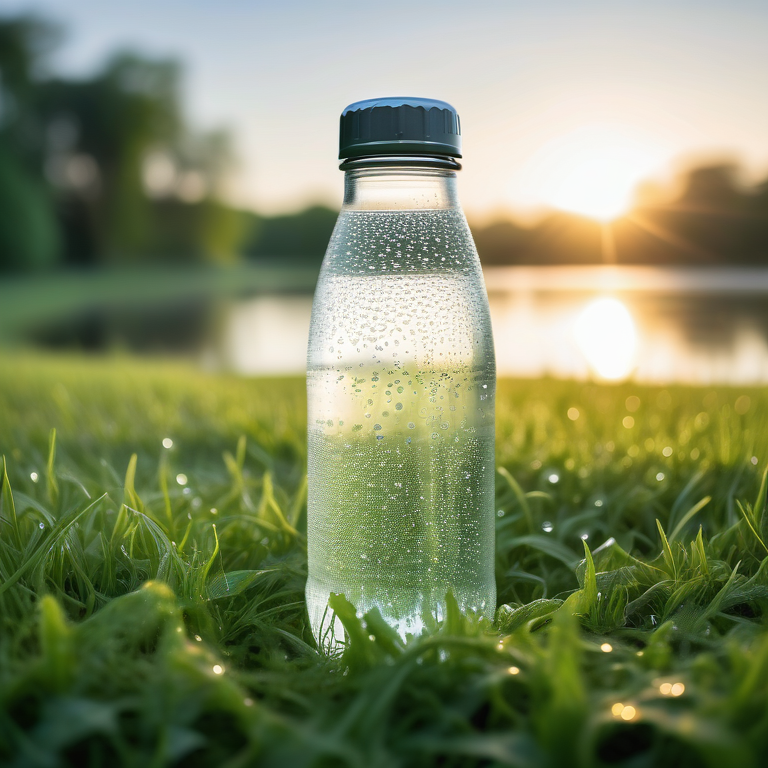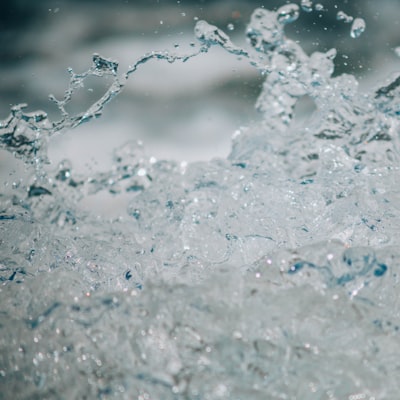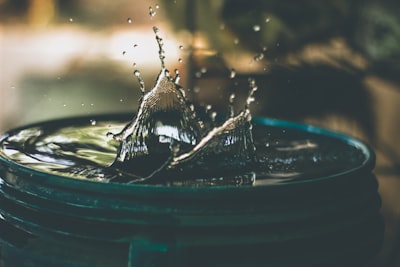The Significance of Hydration for Your Health

Key Highlights
- Maintaining proper hydration is crucial for overall health and well-being.
- Water plays a vital role in regulating body temperature, transporting nutrients, and flushing out waste products.
- Individual hydration needs vary based on factors such as activity level, climate, and overall health.
- Recognizing the signs of dehydration, such as thirst, dark urine, and fatigue is essential for preventing complications.
- Beyond water, other beverages like milk, juice, and herbal teas contribute to daily fluid intake.
Introduction

Hydration is about giving your body enough water. It is very important for staying healthy. Drinking enough water has many benefits, including maintaining good health. It helps your body work well, like keeping your temperature steady and sending nutrients to your cells. Knowing why hydration matters and how it helps your well-being is key for living a healthy life. However, it’s not just about water – making smart beverage choices can also contribute to your overall hydration and health.
Understanding Hydration: The Science and Benefits

Hydration means keeping the right balance of fluids in your body. Water forms a large part of your body weight. It works as a solvent, transporter, and helps control many body functions.
If you do not keep this balance, you can become dehydrated. This means your body does not have enough fluids to work well. Dehydration can hurt how your body works and how you think. In serious cases, it can cause major health issues.
The Role of Water in the Human Body

Water is a key part of many fluids in the body, like blood and lymph. It helps move oxygen, nutrients, and hormones to cells everywhere in the body.
Water is also important for controlling body temperature. It does this by soaking up heat and letting it go. When you sweat, the water evaporating from your skin helps to cool you down.
In addition to temperature control, water is necessary for the kidneys to work well. It helps break down waste and pushes it out through urine. Staying hydrated is also important for keeping a balance of electrolytes, which is needed for nerve and muscle functions.
How Hydration Affects Physical and Mental Performance

The role of hydration in physical performance is clear. Even mild dehydration can lead to less endurance, lower strength, and poor coordination. Athletes are especially affected by dehydration, which shows how important it is to drink enough fluids when being active.
Hydration also impacts mental performance. Research shows that when dehydrated, people can struggle with focus, attention, and memory.
Energy drinks might look like a quick way to deal with dehydration and give a boost of energy, but they are often high in sugar and caffeine. This can actually make dehydration worse because these drinks can cause more fluid loss.
Daily Hydration Needs: How Much Is Enough?
Figuring out how much water each person needs is not easy. Many things affect this, like body weight, how active you are, the weather, and your health. The basic idea of eight glasses a day is just a guide; it doesn’t fit everyone.
Things like exercise, hot weather, and some health issues can make you lose more fluids, so you need to drink more water. It’s important to listen to your body and notice when you feel thirsty to stay properly hydrated.
Debunking the 8 Glasses a Day Myth
The notion of drinking eight glasses of water daily has become ingrained in health advice; however, this recommendation is an oversimplification. In reality, determining individual water needs is far more nuanced. The Institute of Medicine (IOM) suggests adequate daily fluid intake, encompassing all beverages and water-rich foods:
| Group | Daily Fluid Intake |
| Adult Men | ~15.5 cups (3.7 liters) |
| Adult Women | ~11.5 cups (2.7 liters) |
Notably, this intake doesn’t solely constitute water. Foods, especially fruits and vegetables, contribute significantly to overall hydration. Factors like activity level, climate, and health conditions influence individual requirements, rendering a fixed “glasses per day” rule less effective.
Factors Influencing Individual Hydration Needs
One key factor that affects how much water you need is body weight. People who weigh more require more fluids to keep their cells working well and stay hydrated.
Another important factor is the weather and how active you are, especially when it’s hot outside. When you exercise or do hard work that makes you sweat, you lose more fluids. If you do not replace these fluids, it can lead to dehydration.
Medical conditions can also change how much water you need to drink. Issues like fever, vomiting, and diarrhea can make the body lose fluids quickly. Additionally, those who have health problems, like issues with their kidneys or bladder, may need special guidance on the amount of water they need to drink from their doctors. Factors such as climate, clothing, exercise intensity and duration, and individual health status can all influence individual hydration needs, making it important for healthy people to pay attention to their body’s signals and adjust their fluid intake accordingly.
Recognizing Dehydration: Signs and Symptoms
Dehydration happens when your body loses more fluids than it takes in. This disturbs the balance of fluids in your body. It is important to notice the early signs of dehydration, including feeling very thirsty and having headaches. Catching it early can help stop it from becoming a serious health issue. Dehydration can show symptoms that range from mild to severe, including fainting. These symptoms show that your body urgently needs fluids.
Acting early is essential. It helps to restore hydration and avoid complications. By knowing the signs and listening to your body, you can manage your fluid intake. This way, you can take care of your health.
Early Indicators Your Body Needs Water
One of the first signs of dehydration is thirst. When your body loses fluids, it sends a signal to your brain, telling you to drink more. If you ignore your thirst, it can lead to more dehydration.
Another clear sign is the color and amount of your urine. Usually, when you are well-hydrated, your urine looks pale yellow or clear. However, if your urine is darker, like deep amber, it means you have low fluid levels.
Mild dehydration can also make you feel tired and low on energy. But it’s important to remember that fatigue can come from many other reasons, not just dehydration.
The Risks of Chronic Dehydration
Occasional dehydration can usually be fixed by drinking more fluids. However, chronic dehydration is an ongoing lack of fluids and can harm your overall health. One major risk of chronic dehydration is that it can lead to kidney issues, especially for those who engage in intense exercise. This includes problems like kidney stones, urinary tract infections, and in severe cases, kidney failure due to imbalanced levels of electrolytes such as chloride, sodium, and potassium.
Chronic dehydration can also hurt your heart and blood vessels. You might experience low blood pressure, dizziness, and a fast heart rate. In the end, being dehydrated for a long time puts your heart under stress and can raise the risk of heart problems.
Conclusion
Staying hydrated is very important for your overall health. It affects how well your body and mind work. Water helps your body function and is necessary for your well-being. You need to know how much water you should drink and understand any myths about hydration. It’s also important to spot signs of dehydration and deal with them quickly. This helps avoid health problems from not drinking enough water. Remember, drinking enough water supports your body and makes your skin healthier. Make hydration a priority for a healthier and more energetic life.
Frequently Asked Questions
What Are the Best Sources of Hydration?
Water is the best drink for staying hydrated. You can also get enough water each day from low-sugar fruit juice, milk, and sports drinks, but only drink them in small amounts after hard exercise. Stay away from sugary drinks because they don’t hydrate well and have lots of empty calories.
Can You Drink Too Much Water?
Drinking too much water can happen, but it’s not common. This can lead to water intoxication. It occurs when the kidneys cannot keep up with large amounts of water. This situation can dilute electrolytes in the body and create a dangerous imbalance. That’s why it’s important to stay balanced in your hydration for the best health.
How Does Hydration Impact Skin Health?
Hydration is very important for healthy skin. It helps flush out toxins and brings nutrients to the skin. It also keeps the skin elastic, which helps maintain a glowing and healthy look. Drinking enough water can improve skin texture and lessen dryness. This makes the skin look more youthful.
https://order.store.mayoclinic.com/flex/mmv/incon01
https://order.store.mayoclinic.com/flex/mmv/LIVEY01
https://www.cdc.gov/healthyweight/healthy_eating/water-and-healthier-drinks.html
https://www.cdc.gov/healthy-weight-growth/rethink-your-drink
